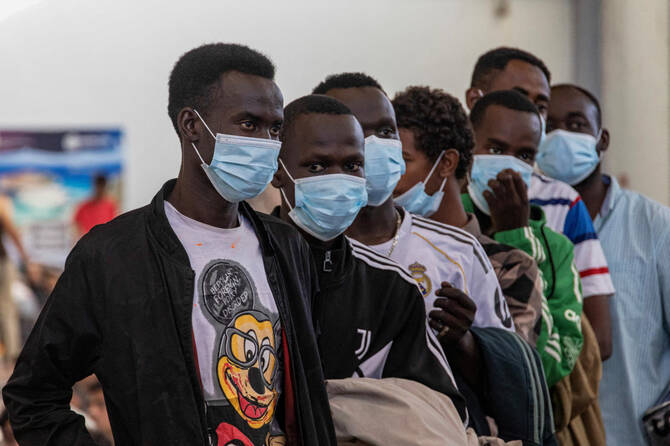Greece has said it may extend a temporary ban on asylum applications from North African migrants if the number of sea arrivals begins to rise again. The announcement was made by Migration Minister Thanos Plevris during an interview with Greece’s public broadcaster, ERT, on Thursday.
The ban, which took effect last month, suspends the processing of asylum claims from individuals arriving by sea from countries such as Libya. It was introduced as part of an emergency measure to curb the growing number of migrants landing on the island of Crete.
Since the policy began, Greece has recorded a sharp drop in arrivals. In early July, more than 2,600 migrants reached Crete in one week. But that number has now fallen to around 900 in the weeks that followed. Plevris warned that if the situation worsens, the government would consider extending the suspension beyond the initial three-month period.
He also revealed that new legislation is being prepared. Under the proposal, migrants who enter Greece illegally—especially those not escaping armed conflict—could face prison terms of up to five years. “There needs to be a strong message that illegal entry has serious consequences,” he said.
Human rights groups have accused Greece of illegally pushing back asylum seekers at both land and sea borders. Earlier this year, the EU’s border agency announced it was reviewing 12 potential human rights abuse cases involving Greek authorities. The Greek government has denied all such allegations.
Plevris stated, “Europe can no longer afford to keep its borders wide open. Every country must control who enters, and Greece will not welcome illegal migrants with open arms.” He added that Greece was working closely with Libya to prevent future crossings.
As part of this cooperation, Greece has deployed two naval frigates to patrol near Libya and has also started training Libyan coast guard officers in Crete. The goal, according to officials, is to reduce the number of boats attempting the journey from North Africa.
Greece was at the centre of Europe’s migrant crisis in 2015 and 2016, when hundreds of thousands of people from war-torn countries in the Middle East and beyond crossed into Europe through its islands. Today, while the overall number of arrivals has decreased, Greece still faces challenges, particularly on Crete and the nearby island of Gavdos.
U.N. data shows that sea arrivals to Greece fell by 5.5% in the first half of 2025, with around 17,000 people making the journey, despite the slight increase in landings on certain islands.

